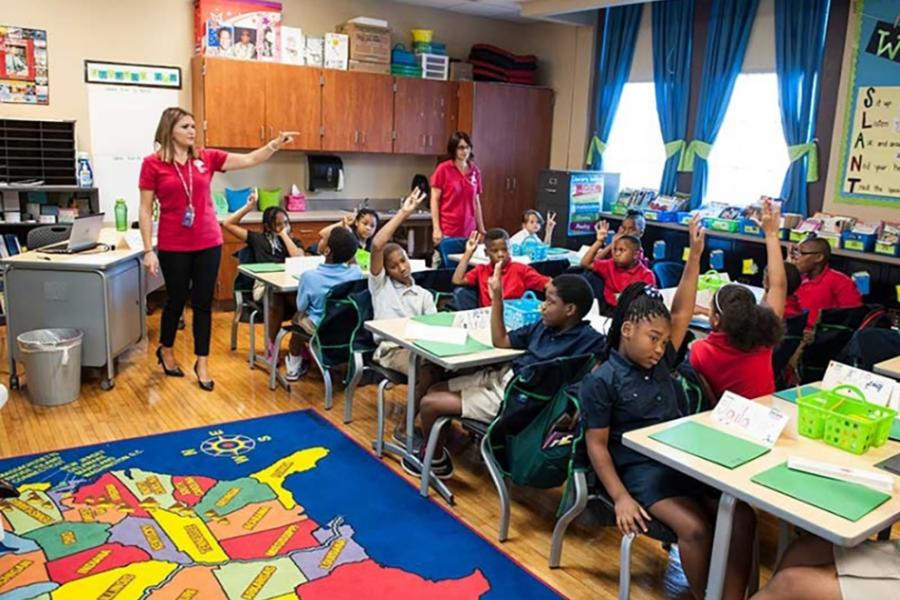Tennessee educator survey highlights needs, concerns from teachers

The state of Tennessee has released its annual survey of teachers and administrators, which is used to inform the state’s work on improving both educator and student experiences.
State-, district-, and school-level data is now available on the survey results website and the Tennessee Educator Survey: 2022 Overview can be found online. Participation in the survey is voluntary, though it does enter participants in a lottery to receive grants of up to $5,500 for staff appreciation at their school. This year, 51% of teachers and administrators across Tennessee participated in the survey.
Key findings from the survey noted that teachers continue to need more support to help meet the non-academic needs of students and families, with more than one in five teachers reporting not having access to training or resources to support students with mental health challenges or students experiencing trauma. Eight out of ten teachers believed that the tutoring their students had received is associated with improved academic performance in their classroom.
While a majority of teachers (81%) felt their school had a positive climate, the number of teachers who disagreed or strongly disagreed their school climate was positive increased by 8%. The majority of teachers felt that students at their school treat adults with respect (70%), that students are safe from bullying at their school (75%), and that they could handle any type of emergency at their school (85%).
Following the 2021-22 school year, teachers said the biggest concerns were students missing instructional time (75%), the long-term economic impact of the pandemic on both teachers and students (58%), students missing support services like counseling and free lunches (45%), and being able to build and maintain relationships with students (40%).
Teachers were more split on issues including planning time with 59% saying their individual planning time was sufficient and 66% saying their collaborative planning time was sufficient. Respondents indicated that 30% have an hour or more of planning time allowed during the day, 15% have 50 to 59 minutes, 19% have 45 to 49 minutes, 19% have 30 to 44 minutes, and 15% have 29 minutes or less.
Likewise, teachers were split on whether their district provides them with materials to be successful in teaching students with mild or moderate disabilities (66% agreed), severe disabilities (43% agreed), and English language learned (57%) agreed. Classroom disruptions (55%), additional planning time required (48%), the difficulty in differentiation instruction (46%), lack of support personnel (37%), and implementing behavioral plans (35%) were the top challenges to supporting students with disabilities.
Respondents also highlighted the importance of connecting career opportunities to learning for middle and high school students. Of CTE teachers, 90% reported that students are interested in their programs of study as well as that their programs of study include course offering that reflect local labor market needs. Nine out of ten high school teachers and eight out of ten middle school teachers indicated they explicitly connect course content to college and career opportunities for their students, as well as being familiar with students’ postsecondary and career goals.
The survey is conducted in partnership with the Tennessee Education Research Alliance (TERA) at Vanderbilt University. For a complete list of topics and downloadable questionnaires, please visit the Tennessee Educator Survey landing page.
